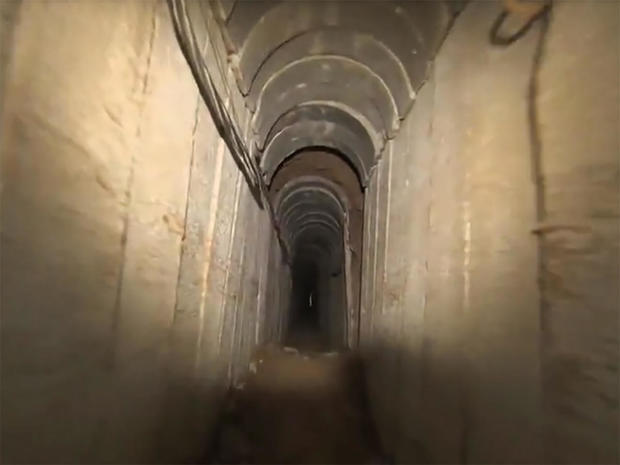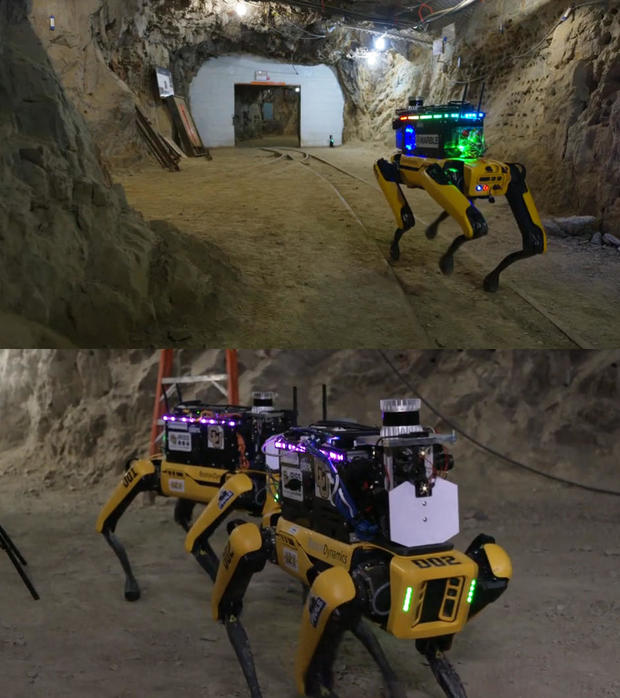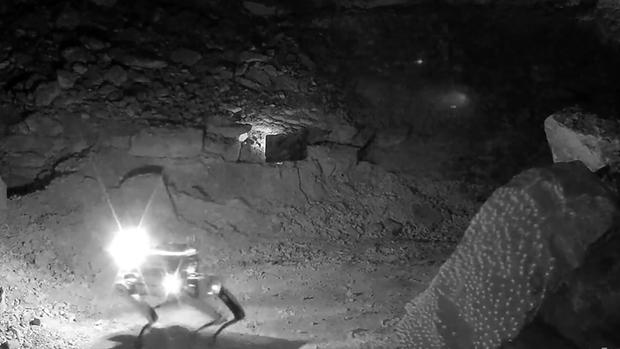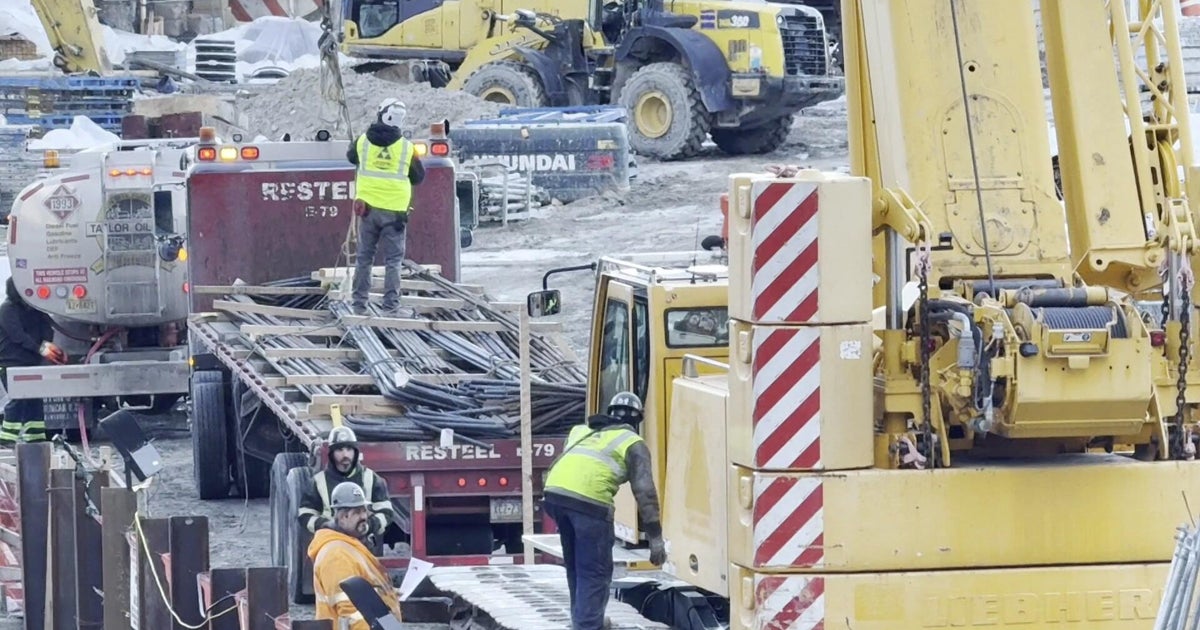Hamas' tunnels: Piercing a battleground beneath Gaza
Israel controls the skies over the Gaza Strip, and from air or ground can flatten any building it considers a legitimate target. Its troops, backed up by tanks, are moving into Gaza City. As they advance through the rubble, they are uncovering another battleground: the vast network of concrete, reinforced tunnels built by Hamas.
"They face a city underneath that city," said John Spencer of West Point's Modern War Institute, "from 15 feet underground to 200 feet, 20-30 stories underground."
If Israel truly intends to destroy Hamas, said Spencer, it will have to go into those tunnels. "Nothing that was created for fighting on the surface works," he said. "You can't see down there. You can't navigate, you can't shoot. It's literally the worst place any soldier would ever want to go."
It is in this underworld terrain that Israel's final battle with Hamas could be fought.
American special operations forces train in Colorado at a two-mile-long tunnel complex. The Hamas tunnel network under Gaza is believed to stretch for 300 miles.
"These are the dirty, dark and dangerous things that we don't want humans to do," said Sean Humbert, of the University of Colorado at Boulder. He headed a team of grad students in the DARPA Subterranean Challenge, a Pentagon competition to develop technologies for operating in this alien battleground.
"You don't have GPS," Humbert said. "Also, communications is very difficult in these sorts of environments, so the communications signals don't propagate through the rock down here."
Before humans go in, an autonomous robot scouts the terrain, using lasers to navigate (even if it's pitch black), and operating on its own without orders from base camp. "The robot's building the map, figuring out where it is within the map, and then trying its best to expand the map and explore the places we haven't been," Humbert said.
Over ground like this, the robot can cover about a kilometer in an hour, stopping when it locates obstacles. "It'll temporarily stop, plan a new path around those obstacles, and then execute that path," Humbert said.
The robot is a marvel of technology, but when it comes to underground war it has one glaring weakness: it's a sitting duck for anyone with a weapon. "It would be," said Humbert, "but the whole point of deploying these systems instead of humans is that these are expendable."
Hamas fighters use the tunnels to ride out the bombing, and to spring ambushes. The tunnels are their best chance of survival against the overwhelming firepower of the Israel Defense Force.
Spencer said, "Hamas has built the tunnel systems to give Hamas time to slow the IDF down, and for the international community to say the damage happening on the surface is too much for the world to bear and to stop. And Hamas lives to fight another day."
In the past Israel has simply sealed off the tunnels it discovered, but that won't work this time, because there are almost certainly hostages being held there. Eighty-five-year-old Yocheved Lifshitz was one of them. After her release, she described being forced through a huge network of tunnels under Gaza: "It looks like a spider web."
Martin asked Spencer, "How does the likelihood that there are hostages being held in those tunnels change how Israel would go about attacking them?"
"It takes away the ability to say, 'Any tunnel I find, I can destroy all of them,'" he replied.
"Do the Israelis have no choice but to go into at least some of these tunnels?"
"There will be many situations which require an IDF system or soldiers to enter the tunnels, yes," Spencer said.
"How does the fight change when you crawl down into that tunnel?"
"It's a game-changer," said Spencer. "All your normal tactics, options, all that changes. The environment can be more of a challenge that the actual enemy."
When asked which side has the advantage in the war because of the tunnels, Spencer replied, "Hamas has the advantage, because they've built such an expanse of tunnels, and they're going to use them to attack, to defend, to preserve, to buy time."
The Israelis have robots, and specially-trained tunnel units. But it may be more than any robot can do.
For more info:
- John Spencer, chair of Urban Warfare Studies, Modern War Institute at West Point
- J. Sean Humbert, Aerospace and Defense faculty director, University of Colorado, Boulder
Story produced by Mary Walsh. Editor: Steven Tyler.
See also:
- Israel scrambles to respond to brazen Hamas assault that killed hundreds ("Sunday Morning")
- Gaza citizens flee from expected Israeli ground offensive ("Sunday Morning")
- Gen. David Petraeus: Hamas' attack on Israel was "far worse than 9/11"
- Prospects of Mideast peace in the midst of horrifying violence ("Sunday Morning")
- Truckloads of humanitarian aid finally enter Gaza ("Sunday Morning")
- Israel's military intensifies shelling of Northern Gaza Strip ("Sunday Morning")







